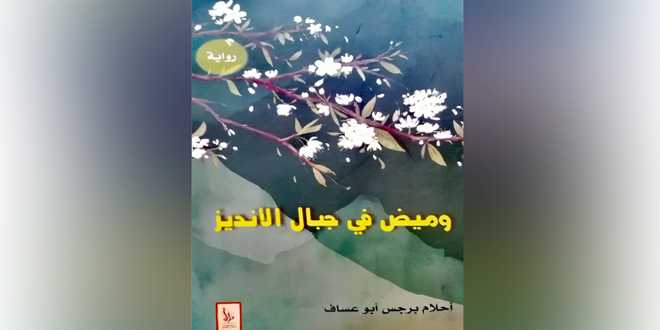Damascus (ST): A Flicker in the Andes Mountains deals with more than one social reality that extends between individual, family and social life to immigration and the negative and positive points that it can leave behind in a narrative style that carries more than one event and more than one heroism.
Between Venezuela and the environment of the writer Ahlam Barjas Abu Assaf, the events of the novel move and cases unfold that many people may have been exposed to in various times of love, treachery, betrayal, ignorance and happiness that forced them to emigrate.
The hope that was in the depths of Shaima, the heroine of the story, was dashed and lost after she was displaced from her homeland to marry Waheed. Disappointments followed when she saw the social contradictions and life mistakes that individuals experience in exile and the lack of loyalty that Waheed had gained. Shaima was shocked by him the moment she arrived at the airport, losing the most beautiful dream she had dreamed of. I found that all the aesthetics I had heard were false, imposter, and evasive.
The traumas that Shaima faced caused her to fall ill. Then the novelist treated the cases of illness through the overlap of characters and stories that each character told about the reality of her life to show how psychiatry, through Dr. Amalia, deals with Shaima as she tells in a narrative ego way about the customs and traditions of her environment, the habits that she encountered, and the mutual disappointments.
The novelist Abu Assaf also raises the problems of divorce through the heroine, betrayals and crimes, which are caused by the mixing of nationalities without relying on moral education, which causes a contradiction in emotions and what emerges from these emotions of longing, annoyance, love and treachery.
In Abu Assaf’s novel, there were many characters, and the events were linked to the heroine’s character, Shaima, and most of them were negative, except for Suzy, the only daughter left by the heroine.
The novelist shows that all countries of exile, especially at night, can resemble their country with stars only to indicate that aesthetics of the homeland cannot be found anywhere on the globe.
K.Q.

